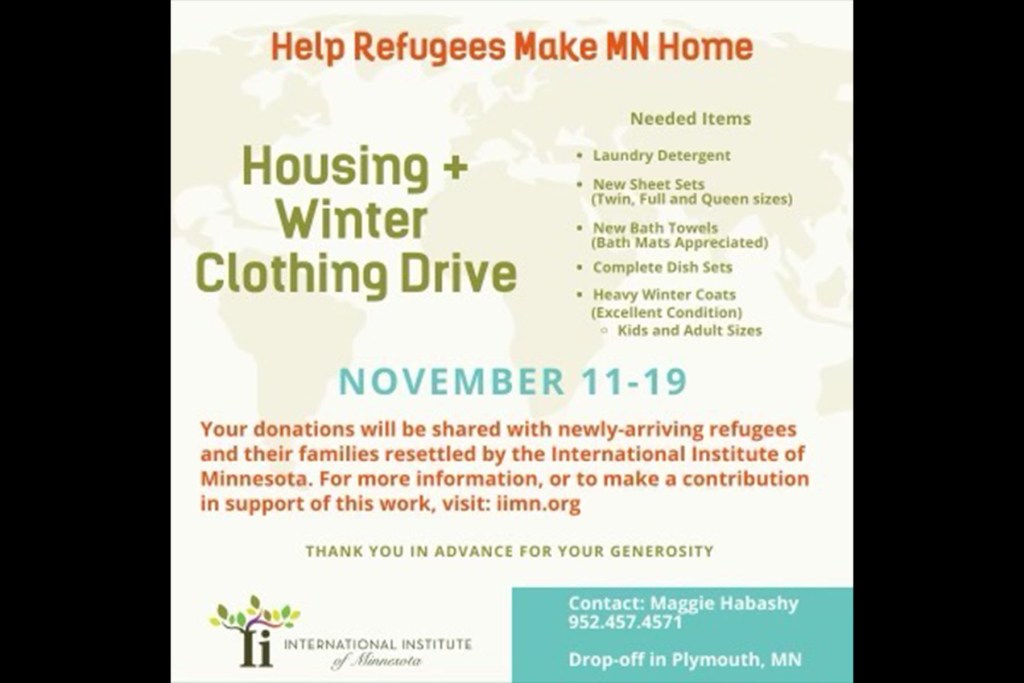As Afghan evacuees leave military bases across the United States, Minnesota is expecting 75 new refugees to arrive in the next week alone.
Thousands of evacuees are resettling across the country, and 274 have arrived in Minnesota since August. The International Institute of Minnesota, a Saint Paul-based resettlement agency, has resettled 51 Afghans since August. The group was expecting two or three families to arrive each week, but the numbers have varied. Last week, the International Institute resetted 18 new refugees. In the next week, the nonprofit anticipates helping four times that number.
The International Institute in Saint Paul is collecting donations to resettle Afghan evacuees in Minnesota. According to Cori Ertz, the group’s development director, refugee agencies across the state help refugees secure affordable housing, find jobs, enroll kids in school, and get access to healthcare. They also provide immigration services to their clients. All of these services carry a cost.
“They’re really helping families begin to start their lives in Minnesota,” Ertz said. “That work isn’t something that happens in a week; it’s not something that happens at the airport. It’s a transition that requires an investment.”
After the swift Taliban takeover in Afghanistan on August 15, Minnesota pledged to accept more than 500 Afghan evacuees, many of whom worked for the U.S. military in Afghanistan as translators, interpreters, and other workers.
Here’s how you can support the growing Afghan community in Minnesota.
Help find housing
The International Institute noted that the most urgent need for incoming Afghans is housing. With low-income housing shortages prevalent across the Twin Cities, Afghan refugees are struggling to find places to live. Once they find housing, they can get their kids enrolled in the local school district, find a job close by, and begin their lives again.
“The Twin Cities already has an affordable housing crisis,” Ertz said. “What is different about refugees that makes it even harder is they are arriving without employment. They have no savings, they have no wage.”
While each agency provides housing assistance in different ways, Ertz said the International Institute helps pay for the first month’s rent and the security deposit, tapping into federal funds as well as philanthropic donations.
Ertz said that landlords interested in renting to Afghan refugees can fill out a form on the agency’s website. The largest need exists for 3–4 bedroom units, but they can use all available low-rent housing.
Donate supplies
To accommodate the everyday needs of a growing number of Afghan families, Maggie Habashy, an International Institute board member, has been hosting donation drives.
You can purchase winter jackets and household supplies through Habashy’s Amazon Wishlist. Habashy said she’ll be adding donation requests to the list as needed.
She’s also holding an in-person donation drive in Plymouth. Contact Habashy at (952) 457-4571 for more information.

Make a financial donation
The International Institute is also collecting financial donations online to support refugees. The International Institute provides a range of services for refugees, including housing support, immigration assistance, language learning, and more.
“The cost of housing is only one barrier. The availability of housing is another barrier,” Ertz said. “The federal government program really only funds about 60 percent of the costs of refugee resettlement. And we really ask for the community to help meet the remainder.”
Refer to legal resources
The International Refugee Assistance Project has compiled legal information for Afghans trying to relocate, including people who are pursuing a Special Immigrant Visa (SIV), or a P-2 refugee designation. The guide includes a list of free immigration service providers in the United States.
Support a local Afghan-owned business
Ariana Kabob & Gyro Bistro is an Afghan and Mediterranean restaurant in St. Louis Park that opened in 2013. The restaurant is also raising funds for displaced Afghan refugees.
Football Pizza has locations in northeast Minneapolis and Columbia Heights. They serve Afghan food and are famous for their football-shaped pizzas.
Khyber Pass Cafe is an Afghan restaurant in Saint Paul that has been open since 1984. The restaurant is currently open for takeout and curbside pickup only.
With a team comprising three Afghan sisters and their mom, Maazah is an online business featuring chutney made from cilantro and peppers.
Owned by community organizer Sonia Sahar, Under the Lote Tree is a self-publishing company that creates Arabic and Islamic workbooks for children ages 2–5 years old.
Sahan Journal will be updating this resource list. If you have initiatives or fundraisers to suggest, questions about community needs, or story ideas, please reach out to us at hansari@sahanjournal.com.






